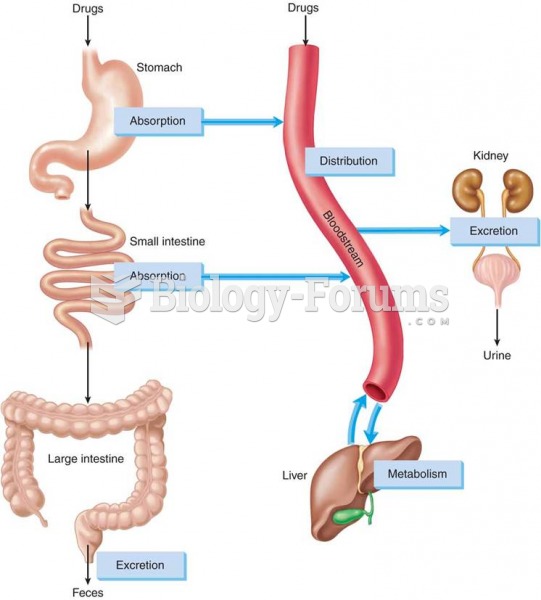|
|
|
Women are 50% to 75% more likely than men to experience an adverse drug reaction.
Asthma attacks and symptoms usually get started by specific triggers (such as viruses, allergies, gases, and air particles). You should talk to your doctor about these triggers and find ways to avoid or get rid of them.
Drugs are in development that may cure asthma and hay fever once and for all. They target leukotrienes, which are known to cause tightening of the air passages in the lungs and increase mucus productions in nasal passages.
Long-term mental and physical effects from substance abuse include: paranoia, psychosis, immune deficiencies, and organ damage.
Children of people with alcoholism are more inclined to drink alcohol or use hard drugs. In fact, they are 400 times more likely to use hard drugs than those who do not have a family history of alcohol addiction.
 Paland and Lynch demonstrated the importance of sexual reproduction in reducing the frequency of mal
Paland and Lynch demonstrated the importance of sexual reproduction in reducing the frequency of mal
 The small-scale distribution of different tree species in a Douglas-fir forest is determined by both
The small-scale distribution of different tree species in a Douglas-fir forest is determined by both





